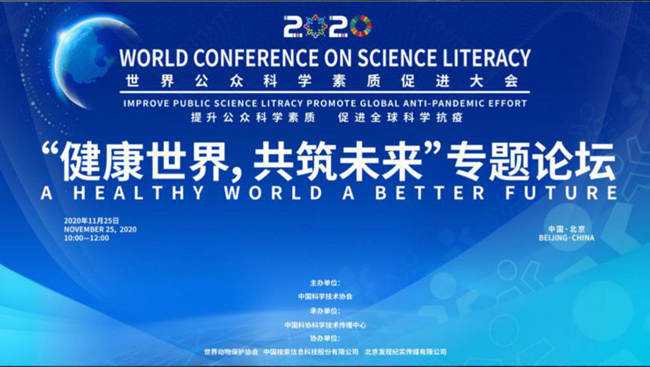
The forum "A Healthy World, A Better Future" was held at the 2020 World Conference on Science Literacy in Beijing on November 25, organized by the China Association for Science and Technology (CAST) and hosted by them, the National Communication Center for Science Technology and World Animal Protection (WAP) .
A number of officials and experts attended the forum and gave lectures, including Chen Rui, deputy director of the Communication Center for Science Technology, CAST; Zhao Zhonghua, chief representative of the Beijing representative office of WAP; Tan Weihong, academician at the Chinese Academy of Sciences; Lesa Thompson, Asia-Pacific representative of WAP; and Terry Townshend, senior adviser on ecological protection at the Paulson Institute. The forum was held both onsite and on an online live stream, and was attended by more than 80 experts, media reporters and audiences from the fields of environment and health, medical care and artificial intelligence.
Since COVID-19 has triggered new thinking about ecosystem health and the sustainable development of mankind, the forum themed "a healthy world, a better future", explored how to balance human and nature and maintain ecosystem balance, as well as discussing the important role of new technologies to the health sector in the post-epidemic era in order to build a global community of health for all.
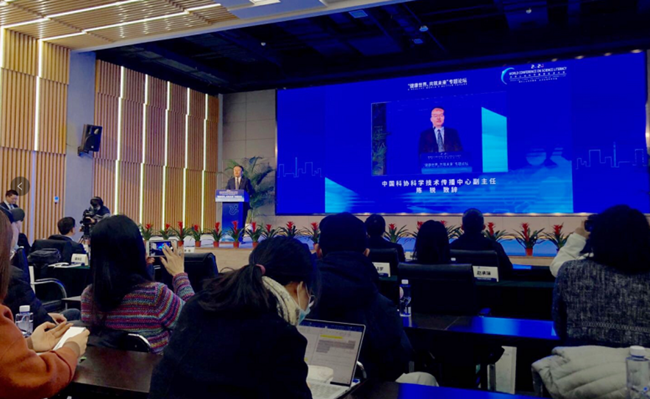
Chen Rui delivers a speech [Photo provided to chinadaily.com.cn]
Chen noted that the prevention and control of COVID-19 showed Chinese people's confidence and achievements in safeguarding humanity's life and health, working together with the world. "In the post-epidemic era, we should strengthen international exchanges and cooperation to push forward global economic recovery and safeguard people's health," he said, adding that the National Communication Center for Science Technology, as an important window of international communication, will provide more opportunities and platforms for international technological exchanges by holding this forum.
Zhao mentioned in his speech that human health is closely related with nature and animals' health. Being kind to nature and animals in turn gives humanity a good environment and health, so it is also being kind to humanity itself. Humans should protect nature, animals and biodiversity.
Tan pointed out the current medical problems in China in his lecture. He believes that modern medicine has entered the era of molecular medicine, which requires people to discover the processes of diseases at a molecular level and diagnose and treat diseases based on this research. Tan also shared how molecular medicine was applied in COVID-19 infected cases and biomedical research.
Lesa Thompson said that different regions and areas should enhance cooperation in antibiotic resistance, prevention and control of rabies, and food safety. He hoped that the global community can raise the awareness of antibiotic resistance; especially reducing the use of antibiotics in various animals. He urged people round the world to jointly build a health system for the environment, humans and animals.
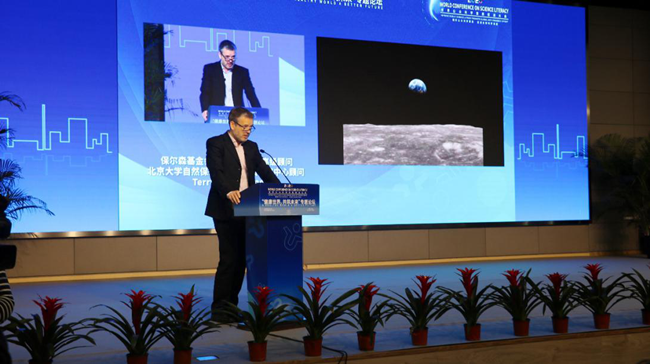
Terry Townshend gives a lecture [Photo provided to chinadaily.com.cn]
Terry Townshend spoke on the topic of public health problems, the economic and social risks caused by the loss of biodiversity, and corresponding measures we should take. He introduced the successful case of the protection of the Beijing swift, which showed the importance of individuals, governments and enterprises in the protection of biodiversity.
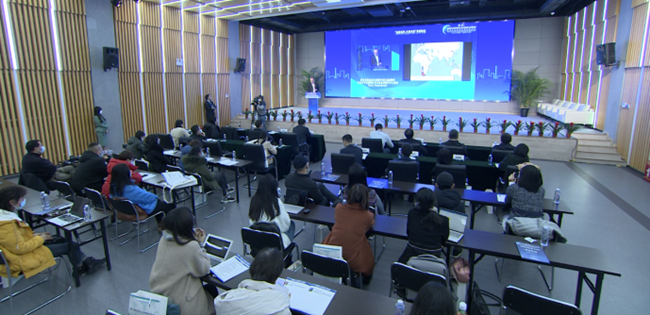
The forum attracted many participants from different fields [Photo provided to chinadaily.com.cn]
Additionally, participants held high-end discussions focusing on "new changes in human health under the epidemic" and "science and technologies for a healthy world", which explored the role of scientific epidemic prevention of COVID-19, how to guarantee medical work under regular epidemic prevention and control, and how does artificial intelligence make contributions to human health.
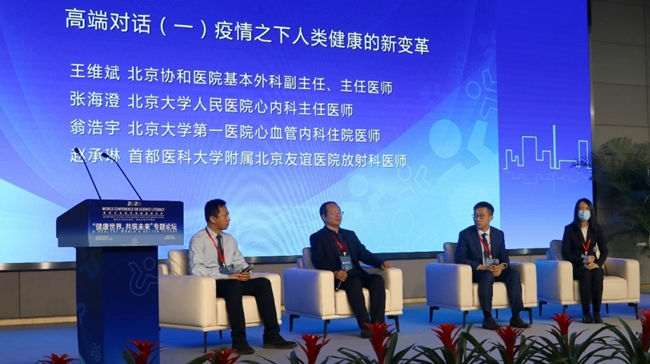
The first part of the dialogue [Photo provided to chinadaily.com.cn]
Doctors from famous hospitals such as Peking Union Medical College Hospital and Peking University People's Hospital and experts from the Institute of Automation, CAS, Tsinghua University and Baidu Smart Medical Service were invited to participate in this high-end dialogue.
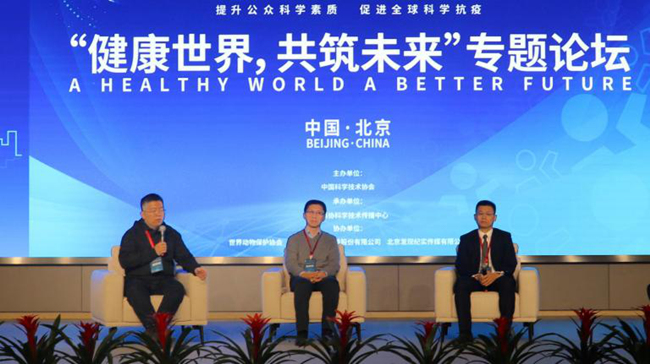
The second part of the dialogue [Photo provided to chinadaily.com.cn]
The World Conference on Science Literacy is sponsored and organized by CAST. It is aimed at building a high-level, global and comprehensive cooperation platform for scientific communication in order to improve science literacy and better respond to common global problems in science, technology and social development. From November 18 to December 7, five thematic 2020 World Conference on Science Literacy forums are being held in succession, focusing on building public scientific literacy in different fields. The 2020 World Conference on Science Literacy will be held in Beijing on December 8.